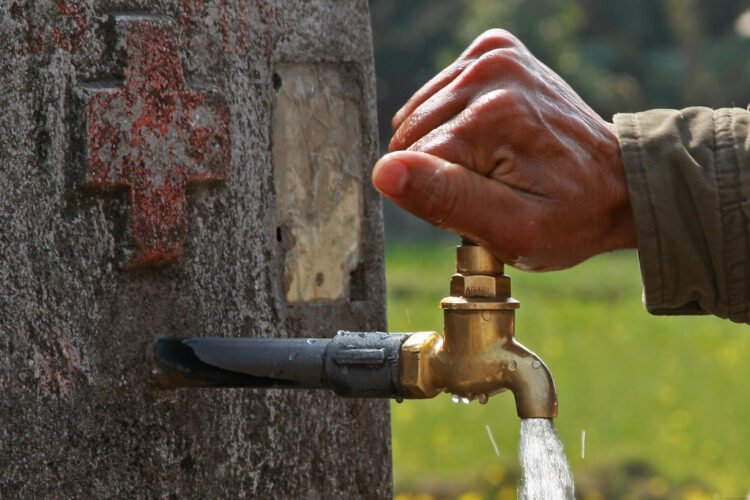KATHMANDU: The first phase of the Kathmandu Valley Drinking Water Improvement Project, operating under Sub-Project 2 of the Melamchi Water Supply Project, has been successfully completed, according to the Project Implementation Directorate (PID).
The initiative aimed to replace Kathmandu Valley’s decades-old, dilapidated water pipelines with a new leakage-free distribution system to ensure clean and proportional supply of drinking water to households across the valley.
According to the Kathmandu Valley Drinking Water Limited (KUKL) Project Implementation Directorate, the first phase involved the construction of new service reservoirs (water tanks), a bulk water distribution system from the Sundarijal water treatment plant to storage sites, a comprehensive household water distribution network, and two wastewater treatment plants.
A total of 10 new reservoirs with a combined storage capacity of 74,500 cubic meters have been constructed at various locations throughout the Valley.
A new bulk distribution pipeline system of approximately 77 kilometers in length, with the capacity to transport 220 million liters of water per day from Sundarijal to the reservoirs, has also been completed.
To ensure household-level water access, the project constructed around 1,010 kilometers of new distribution pipelines, now supplying water directly to residents through these upgraded systems.
In addition, with internal funding from the Government of Nepal, an additional 800 kilometers of distribution pipelines were built in areas such as Swayambhu, Baluwatar, Maharajgunj, Dhumbarahi, Mandikhatar, Kapan, Chabahil, and southern parts of Boudha, said Deputy Project Director Engineer Bikesh Badantha Che.
The entire system is being managed via a centralized SCADA system (Supervisory Control and Data Acquisition) from the control center at the KUKL branch office in Panipokhari. This system also monitors water clarity and chlorine levels to ensure quality control across all reservoirs.
Meanwhile, two wastewater treatment plants have been completed, one in Guheshwori, Kathmandu, with a daily capacity of 32.4 million liters, and another in Dhobighat, Lalitpur, capable of treating 37 million liters per day. These plants treat wastewater before releasing clean water back into rivers, such as the Bagmati.
Construction is ongoing for additional treatment facilities in Dhobighat (second plant), Kodku, and Sallaghari (Bhaktapur). Once completed, these plants will collectively treat over 65 million liters of wastewater per day, contributing significantly to environmental conservation in the Valley.
The project also included the construction of a UNESCO-standard drainage system in and around Patan Durbar Square, addressing long-standing issues of monsoon flooding and clogged drains in the historic zone.
So far, the PID has handed over 14 out of 33 designated District Metered Areas (DMAs), including reservoirs and pipelines (such as in Tribhuvan University), to the Kathmandu Valley Drinking Water Management Board. Preparations are underway to transfer 11 more systems, with the remaining 8 expected to be handed over soon.
All operational and maintenance responsibilities of transferred infrastructure now rest with KUKL.
Additionally, to support urban fire safety, 348 fire hydrants have been installed across the DMA zones. These systems allow both direct connection to fire trucks and pipeline-based fire suppression. Testing has been completed, and the process of handing them over to the Kathmandu and Lalitpur Metropolitan Cities is currently in progress.





